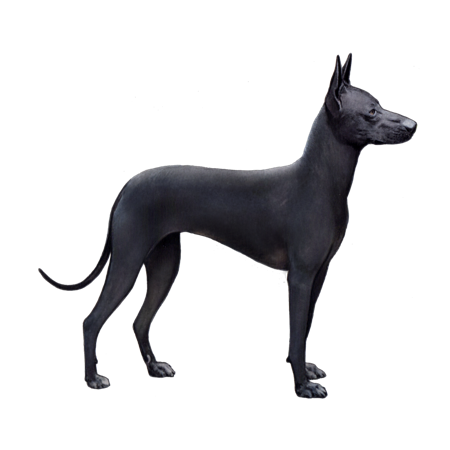
Norfolk Terrier
The Norfolk Terrier is an intelligent, playful breed. Loving and loyal to family and friendly to all—including other pets and children—Norfolk Terriers make superb little companions.
Interested in discovering if your dog is a Norfolk Terrier?
Check out Wisdom Panel's DNA tests.

Norfolk Terrier Traits
General Appearance
Although the Norfolk Terrier is compact and short-legged, it's a powerful breed that's always ready for action.
Coat and Colouring
The Norfolk Terrier has a wiry coat that comes in all shades of red, wheaten, black and tan, or grizzle (black hairs in the coat). Black points are also possible.
Distinctive Physical Traits
The Norfolk Terrier's distinguishable coat and neatly folded ears are trademark features.
Norfolk Terrier Temperament
Though they are one of the smallest working terriers, Norfolks have tons of energy and spunk. They are typically more outgoing than the classic terrier.
Norfolk Terriers bond closely with their family but sometimes display a jealous streak. Bred to work in groups, Norfolks are playful, make fine companions, and—if socialized at an early age—love children.
This breed seems just as comfortable in the country as it does in a city environment. A fearless little dog with a big-dog attitude, the Norfolk Terrier makes a vigilant guard, barking if a stranger comes near. When neglected or left alone, Norfolks may bark or dig out of boredom.


Norfolk Terrier History
The Norfolk Terrier came about in the 1880s when British hunters crossed Cairn Terriers, Irish Terriers, and small, red terriers. The resulting early Norfolk Terriers primarily served as rodent and fox hunters.
The English Kennel Club first accepted the breed in 1932, and the American Kennel Club followed in 1936. (But Norwich Terriers and Norfolk Terriers were classified as the same breed at this time.)
In 1979, the Norfolk and Norwich Terriers received independent recognition as breeds. And after many years, the two breeds had developed distinctive looks and characteristics. The Norfolk has round, dropped ears in contrast to the prick ears of the Norwich.
Some people think the two breeds have always been distinct, and the Kennel Club simply made an error classifying them as one breed.
Norfolk Terrier Care
Nutrition
Norfolk Terriers need high-quality food appropriate for their age and size.
It's important to monitor how much your Norfolk Terrier eats and reduce portions if your pup gains weight. Also, remember that giving too many treats in addition to regular meals can contribute to obesity.
Grooming
The hard outer coat and soft undercoat of the Norfolk Terrier benefit from hand-stripping. This process of pulling dead hairs out of the outer coat and excess hairs from the undercoat allows new hair to grow.
Regular nail trimming and dental care are also integral to any at-home dog care routine.
Exercise
Whether it's taking a long walk, mingling with other pets and people, or playing, the Norfolk Terrier craves physical and mental exercise. The breed is hardwired to be energetic and has a strong prey drive. So, make sure you limit all activities to a fenced-in yard or use a leash.
Norfolk Terriers also seem to enjoy dog sports—such as agility, racing, lure coursing, tracking, musical freestyle, and water sports.
Training
Norfolk Terriers often have an independent nature. So, training should be firm (but gentle) and start at an early age.
Use motivational tools, such as yummy treats and favorite toys, to reduce sensitivity and stubbornness. This reward-based obedience training approach will ensure success.

Norfolk Terrier Genetic Health Conditions
-
Epidermolytic Hyperkeratosis
Epidermolytic Hyperkeratosis is a skin disorder that causes the skin to be fragile and easily damaged from birth followed by thickening of the skin in adulthood.
-
Macrothrombocytopenia (Discovered in Norfolk and Cairn Terrier)
Macrothrombocytopenia is a blood disorder characterized by oversized blood platelets, which play an important role in blood clotting when a blood vessel is injured.
-
Muscular Dystrophy (Discovered in the Norfolk Terrier)
This form of Muscular Dystrophy is a disease of progressive muscular weakness, respiratory problems, and cardiomyopathy (heart disease).
Knowing if your Norfolk Terrier is a carrier or at-risk for these conditions can help you and your veterinarian plan for your pup's lifelong care. With Wisdom Panel™ Premium, you can get results for over 200 genetic health tests.
Breed Group
Terrier
The Terrier Group ancestors were bred to hunt and kill vermin. They are often characterized as feisty and energetic dogs whose sizes range from fairly small to much larger.
Resources
https://www.akc.org/dog-breeds/norfolk-terrier/
https://www.google.com/books/edition/Norfolk_Terrier/F8EKBgAAQBAJ
Reviewed 26 July 2020 by Cindy Elston, DVM, MPH





















































